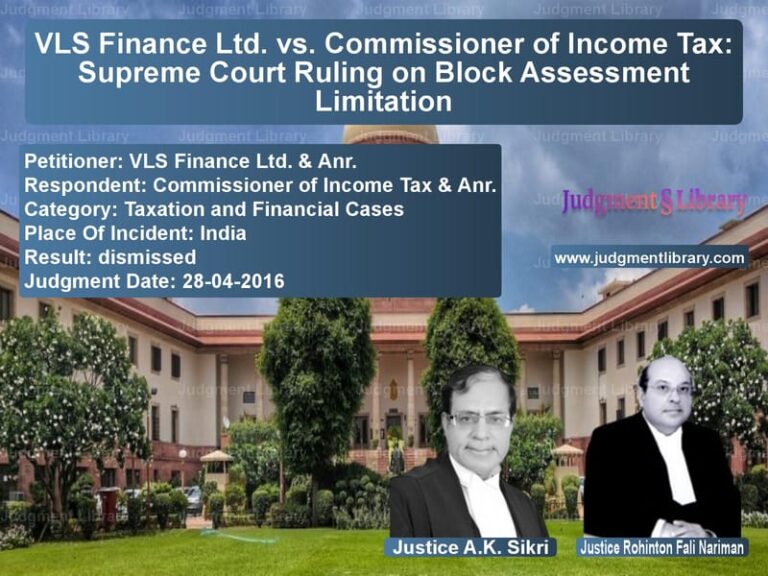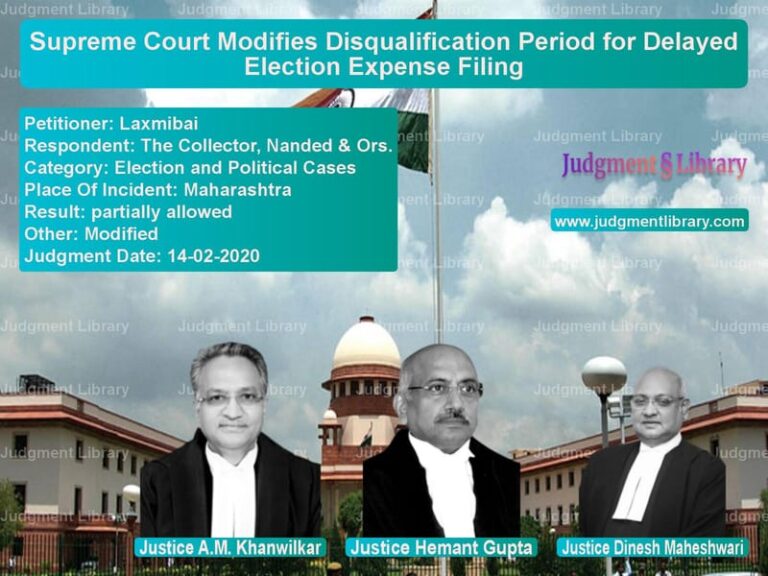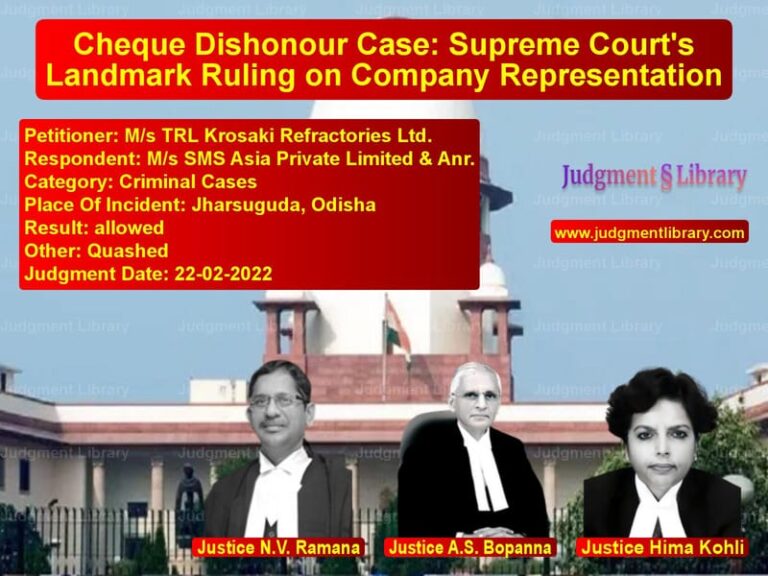UP Police Constable Recruitment: Supreme Court Dismisses Petition on Selection Process
The case of Pramod Kumar Singh & Ors. vs. State of Uttar Pradesh & Ors. concerns the recruitment process for police constables in Uttar Pradesh. The petitioners approached the Supreme Court challenging the shifting of reserved category candidates into the open category, arguing that it unfairly reduced the chances of general category candidates.
Background of the Case
The recruitment process began with an advertisement on June 20, 2013, to fill 41,610 posts of Police Constables, including positions in the U.P. Civil Police, Provincial Armed Constabulary (PAC), and Fire Department. The petitioners applied as general category candidates.
Following examinations and selection procedures, results were declared on July 16, 2015. However, vacancies remained unfilled due to a shortage of suitable candidates. Several legal challenges arose concerning various aspects of the recruitment, including horizontal reservation and the use of correctional tools (blades and whiteners) on answer sheets.
Read also: https://judgmentlibrary.com/esi-act-interpretation-supreme-court-ruling-on-conveyance-allowance/
Key Issues Before the Supreme Court
The petitioners raised the following concerns:
- Reserved category candidates who secured higher marks were moved to the open category, reducing available seats for general category candidates.
- The final select list of November 11, 2019, contained irregularities.
- The principle of merit and reservation was not followed correctly.
- The state’s method of adjusting candidates violated the fairness of the recruitment process.
Arguments by the Petitioners
- Improper Overlap: A total of 958 seats meant for general category candidates were allegedly occupied by reserved category candidates who were already selected under their respective quotas.
- Vacant Seats: The petitioners claimed that only 1650 out of 2016 general category seats in the PAC and 446 out of 1038 seats in the Fireman category were filled, leaving several vacancies.
- Merit-Based Selection Ignored: The selection process allegedly overlooked candidates who should have been included based on merit.
Arguments by the State of Uttar Pradesh
- The state followed a structured selection process and adhered to all legal and constitutional requirements.
- Candidates from reserved categories who scored higher were naturally eligible for inclusion in the open category based on merit.
- The final selection list was prepared according to the principle of merit and reservation, ensuring fairness.
- The recruitment followed the Supreme Court’s previous ruling in Ashish Kumar Yadav & Ors. vs. State of Uttar Pradesh, which mandated strict adherence to merit and reservation principles.
Supreme Court’s Observations
1. Application of Merit-Based Selection
The Court ruled that it was legally sound to move high-scoring reserved category candidates into the open category. It stated:
- “When additional vacancies are filled within the same recruitment process, the state is required to apply merit principles while maintaining reservation.”
- “Adjusting candidates based on their merit ranking, even if they belong to reserved categories, is not illegal or unfair.”
2. Shifting of Reserved Candidates to Open Category
The Court reaffirmed that reserved category candidates securing higher marks were entitled to be included in the open category without affecting general category candidates. The Court stated:
- “A candidate from a reserved category who qualifies in the general merit list cannot be prevented from occupying an open category seat.”
- “This practice is consistent with established legal principles and has been upheld in prior judgments.”
3. Vacancies and the Petitioners’ Claims
The Court examined the petitioners’ claim that vacancies remained unfilled and found no merit in their arguments. It held:
- “The petitioners have not demonstrated that any candidate with lower marks was selected in place of a more meritorious candidate.”
- “The principle of reservation was correctly applied in accordance with previous judgments.”
Final Judgment
The Supreme Court dismissed the petition, ruling that the selection process adhered to legal standards. The key takeaways from the ruling include:
- The principle of merit-based selection was correctly applied, allowing reserved category candidates to compete in the open category.
- The petitioners failed to establish any legal violations or procedural irregularities.
- The recruitment process was fair and in line with constitutional provisions.
- No further modifications were required in the November 11, 2019 select list.
Implications of the Judgment
This ruling has significant implications for recruitment policies in government services:
- It reinforces the Supreme Court’s stance that merit-based selection must be followed while implementing reservation policies.
- It clarifies that high-scoring reserved candidates can be considered for the open category.
- It upholds the Uttar Pradesh government’s recruitment process and ensures fairness for all candidates.
The Supreme Court’s judgment sets a precedent for similar cases, ensuring that government recruitment processes remain transparent and adhere to legal guidelines.
Petitioner Name: Pramod Kumar Singh & Ors..Respondent Name: State of Uttar Pradesh & Ors..Judgment By: Justice Uday Umesh Lalit, Justice S. Ravindra Bhat, Justice Hrishikesh Roy.Place Of Incident: Uttar Pradesh.Judgment Date: 16-03-2021.
Don’t miss out on the full details! Download the complete judgment in PDF format below and gain valuable insights instantly!
Download Judgment: pramod-kumar-singh-&-vs-state-of-uttar-prade-supreme-court-of-india-judgment-dated-16-03-2021.pdf
Directly Download Judgment: Directly download this Judgment
See all petitions in Recruitment Policies
See all petitions in Public Sector Employees
See all petitions in Employment Disputes
See all petitions in Judgment by Uday Umesh Lalit
See all petitions in Judgment by S Ravindra Bhat
See all petitions in Judgment by Hrishikesh Roy
See all petitions in dismissed
See all petitions in supreme court of India judgments March 2021
See all petitions in 2021 judgments
See all posts in Service Matters Category
See all allowed petitions in Service Matters Category
See all Dismissed petitions in Service Matters Category
See all partially allowed petitions in Service Matters Category







